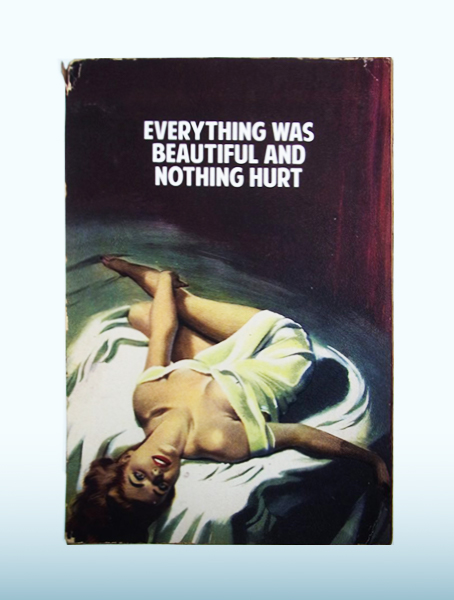Everything was Beautiful and Nothing Hurt
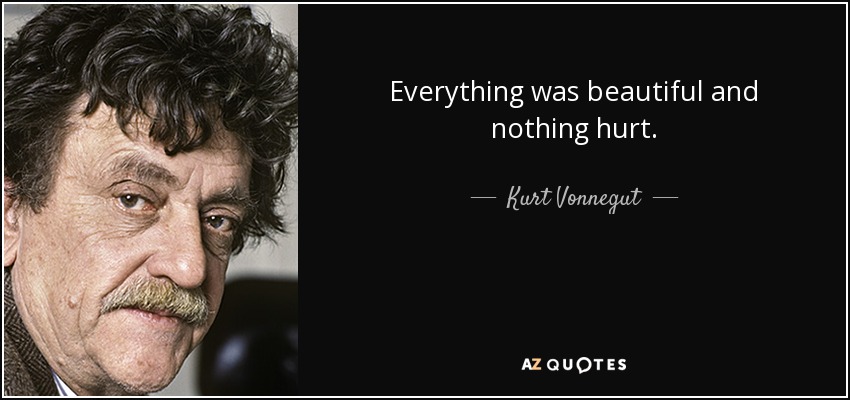
“Everything was beautiful and nothing hurt” is a famous line from Kurt Vonnegut’s 1969 novel Slaughterhouse-Five. It’s a quote said by the main character Billy Pilgrim, when his wife asks him about his experiences in World War II.
The quote is meant to be ironic, as Billy’s life has been filled with pain, suffering, and trauma from the war. The “everything” and “nothing” language highlights how unrealistic it would be for someone like Billy to truly feel that way.
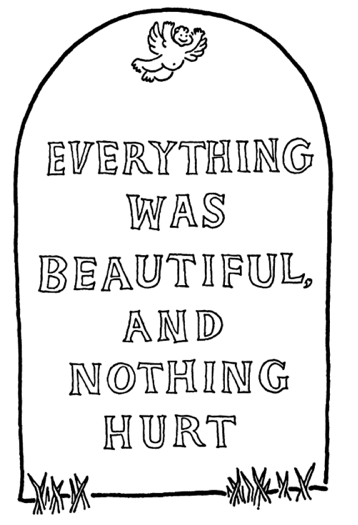
Some key points about the quote and its meaning:
- It’s meant to sound like a “revelation of a dying man”, as Billy time travels and knows he will die soon. This adds to his sense of apathy and detachment.
- It’s absurd and doesn’t truly apply to real human life which is “so imperfect and riddled with flaws and defects”. But that absurdity matches Billy’s warped perspective.
- Billy considers it as a hypothetical epitaph for his gravestone, but it would be completely ironic given his painful experiences.
- It perhaps suggests that only after going through difficulties and seeing life from a different perspective, can things become “beautiful” for someone like Billy.
What is the meaning behind the quote “everything was beautiful and nothing hurt”
The quote “Everything was beautiful and nothing hurt” from Kurt Vonnegut’s Slaughterhouse-Five has an ironic meaning.
The key points about the quote’s meaning are:
- It’s meant to sound unrealistic and absurd, given all the pain and trauma the character Billy Pilgrim has experienced in the war. The “everything” and “nothing” language highlights this absurdity. [1][3]
- It’s like a “revelation of a dying man”, as Billy knows he will die soon due to his time traveling. This adds to his sense of detachment and apathy.
- It could be Billy’s hypothetical epitaph on his gravestone, but it would be completely ironic given the suffering he’s endured.
- The quote’s impossibility and improbability match the odd and traumatic things Billy has experienced. So it reflects his struggle to process these experiences.
- There’s a suggestion that only after going through difficulties, can things become “beautiful” in Billy’s warped perspective.
So in summary, it’s an ironic quote that highlights the absurdity of Billy feeling that way after everything he’s endured in the war. It reflects his detached mindset and difficulty reconciling his trauma.
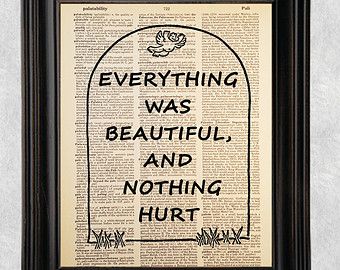
What is the significance of the character Billy in Slaughterhouse-Five?
The character of Billy Pilgrim has a few key significances in Kurt Vonnegut’s Slaughterhouse-Five:
- Billy serves as an antiheroic main character. He is weak, passive, awkward, and lacks traditional heroic soldier qualities. This makes us question the validity and glory of wars like WWII and Vietnam.
- His “unstuck in time” condition and absurd experiences reflect the struggle to process trauma after living through terrible events like Dresden. His detached perspective matches the quote “Everything was beautiful and nothing hurt”.
- Billy’s passive nature and constant indignities highlight the lack of control people have over their fates in times of war. His helplessness against trauma and circumstance is symbolic.
- As an unlikely war survivor, his character underscores the randomness and meaninglessness of death in war. The way war makes “heroes” out of the most unlikely people points to its absurdity.
- Some suggest Billy’s alien abduction and time-traveling could represent his mind creating coping mechanisms to deal with postwar trauma.
So in many ways, Billy symbolizes the chaos and absurdity of war, as well as the lasting impacts it can have on “ordinary” people forced to live through horror. His character challenges typical war narratives.
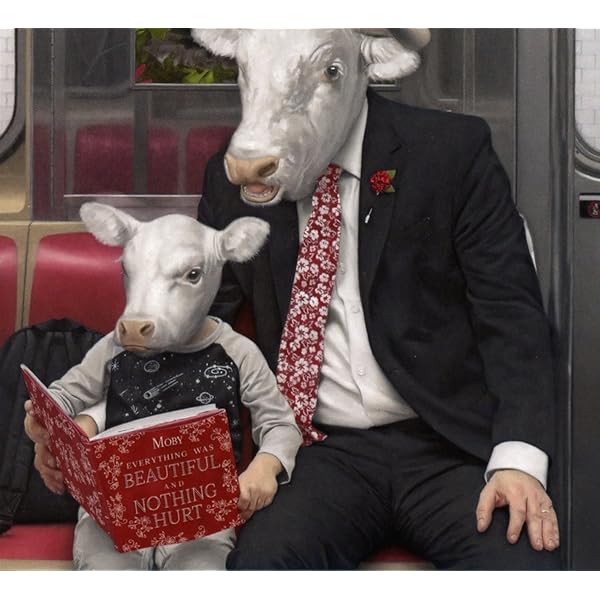
How does Billy’s character change throughout the novel?
Billy Pilgrim’s character goes through some key changes throughout Slaughterhouse-Five:
- Billy starts as a very passive, awkward, and weak character. He lacks any traditional heroic or soldierly qualities. This makes him an unlikely war survivor.
- After surviving the trauma of war events like the Dresden bombing, Billy becomes “unstuck in time” and detached from reality. This reflects his struggle to process what he’s been through.
- In the hospital after a plane crash, Billy starts contemplating his ability to time travel. This highlights a shift to him being more contemplative and thoughtful.
- Near the end, Billy gains a sense of dignity and control over his fate. When he awaits his assassination, he is calm and unafraid – very different than his former nervousness.
- By the end, Billy seems more determined to tell people about his experiences and perspectives, showing more assertion. He wants to share what he’s learned in a more altruistic way.
Conclusion
Billy starts as a weak and awkward character but through his traumatic experiences, he gains more contemplation, dignity, control, and willingness to engage with the world. The changes reflect his struggle to process the war’s impacts on him.
So in summary, it’s an ironic, unrealistic quote that highlights Billy Pilgrim’s detached and warped perspective on life after his traumatic war experiences. The absurdity and impossibility of the quote match his struggle to process what he’s been through.
